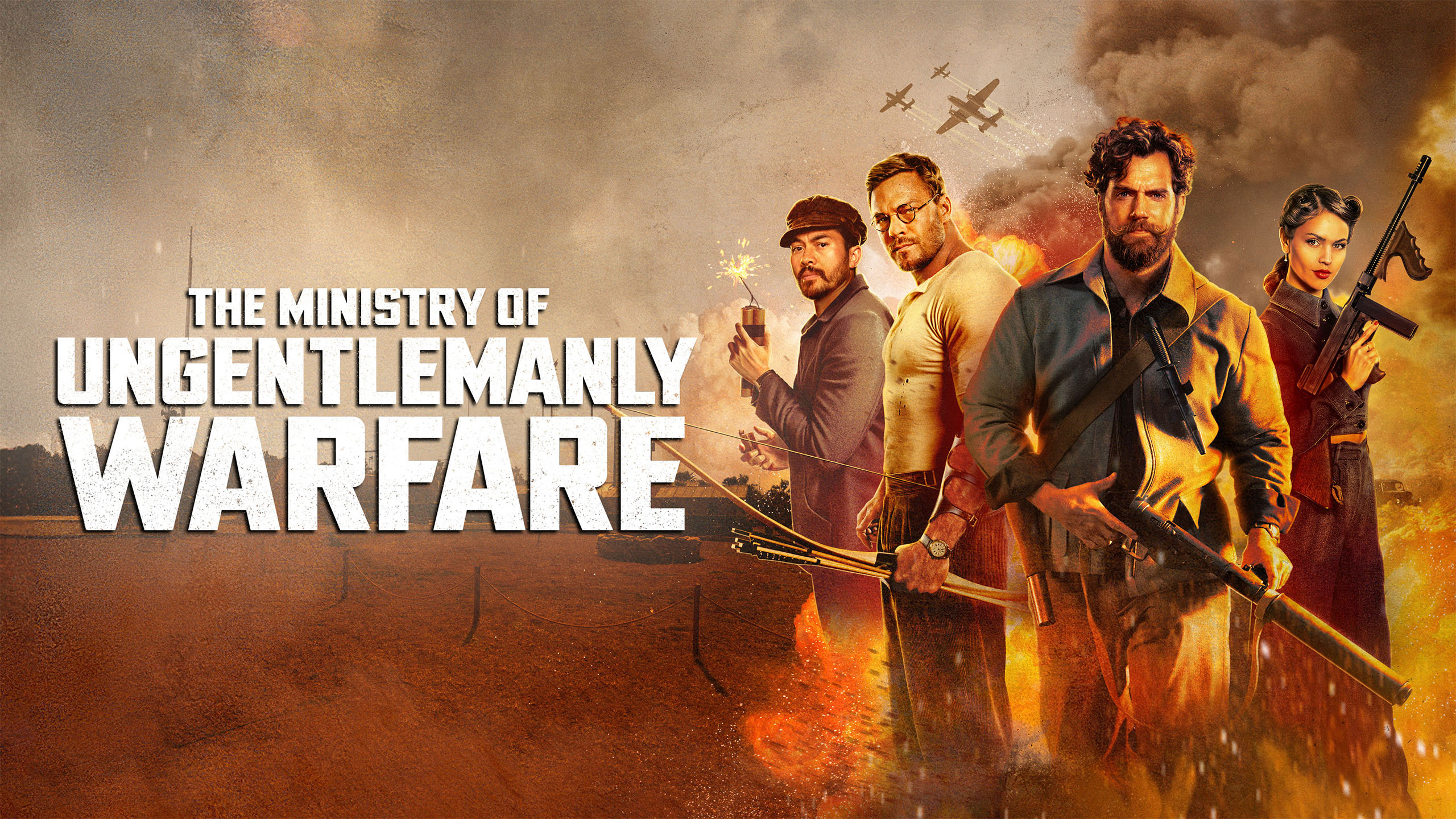Is Guy Ritchie the last true showman of our smirking age, or is he just the only one shameless enough to relight the fuse on the old war-comic dynamite? With The Ministry of Ungentlemanly Warfare, he hauls his bag of cheeky tricks to World War II—history, for Ritchie, is less a backdrop than a soundstage for swagger, shootouts, and blokes with accents sharp enough to slice through Nazi brass.
This movie doesn’t so much “begin” as swagger in sideways, elbowing you with a wink and an anecdote before detonating into what passes, in the Ritchieverse, for heroic absurdity. Apparently based on true events—don’t laugh, at least not yet—it documents a clandestine crackpot squad out to inconvenience the Axis with maximum theatricality and approximately zero decorum. Imagine Inglourious Basterds stumbled through a Guy Ritchie house party, only to wake up in a heap of spent shells and punchlines, and you’re circling the flavor.
We’re spun into a rollicking parade of mayhem: battalions are brushed aside with the casual disinterest of a bored genius tackling an IKEA bookshelf (and with about as much eye for the instructions), while Nazi warships explode with the precise slapstick timing of a good custard pie. The punchline—every spectacle here is an accident perpetually waiting for a hero, and Ritchie arms his heroes with just enough skill, stupidity, and luck to make every blown-up set piece look like a close call choreographed by a divine prankster.
Let’s talk cast: this is the sort of ensemble that Ritchie loves—boys will be boys, and occasionally, they’ll be men, but mostly they’re the kind of movie-rogues who couldn’t follow a military order unless it doubled as a cocktail recipe. Chemistry sparkles (and occasionally combusts); you get the sense these misfits might band together for a pub crawl or a bank heist in Sussex if the director called “cut” at the wrong moment. And when the plot stumbles, limping through its training exercises, that camaraderie carries you over the obstacle course.
No need to belabor the visuals—Ritchie treats editing like a contact sport, his camera swooping, tracking, body-checking you into the action. At times, it’s less cinema than a pub brawl set to jazz. The action dances—sometimes literally—around the line between style and self-parody, with bullets, wisecracks, and bodies flying like so many forgotten hats at closing time.
And yet, for all this fizzy showmanship, Ritchie’s war party never quite slips into the upper echelons with Tarantino’s Inglourious Basterds, whose juicy, layered plotting made even its violence taste like forbidden fruit. Here, the plot lumbers along the familiar circuits—ragtag frogs against the Germanic blender—occasionally tripping over every cliché it encounters, like a bold recruit still learning left from right. You can practically feel Ritchie nudging you in the ribs, “But aren’t we having fun?” Well—yes, but sometimes you want something besides clever surface; it’s the difference between a great jazz solo and someone stuck on the riff.
Still, you’d have to be a full-time grouch not to grin through such preposterous antics. The real pleasure here is the license to laugh at history without the guilt: war, but make it banter, make it chaos, make it play. The movie rides the line between real and reel, as if daring us to object to its breezy anachronisms and “did-that-really-happen?” setpieces.
If you’re the sort of moviegoer who prefers your history lessons with a shot of irreverence—and maybe a chaser of gunpowder—The Ministry of Ungentlemanly Warfare is your next messy, mismatched adventure. It may never reach the high-altitude brilliance of its inspirations, but it’s a reminder (however giddy and lopsided) that sometimes the best way to wage war on boredom is to blow up the rulebook and dance on the ruins—sequins optional, explosion mandatory.
Go ahead, buy a ticket: it won’t change your life, but it’ll leave you laughing as the credits roll, wondering if next time, Guy Ritchie might actually read the instructions—or just set them on fire.


